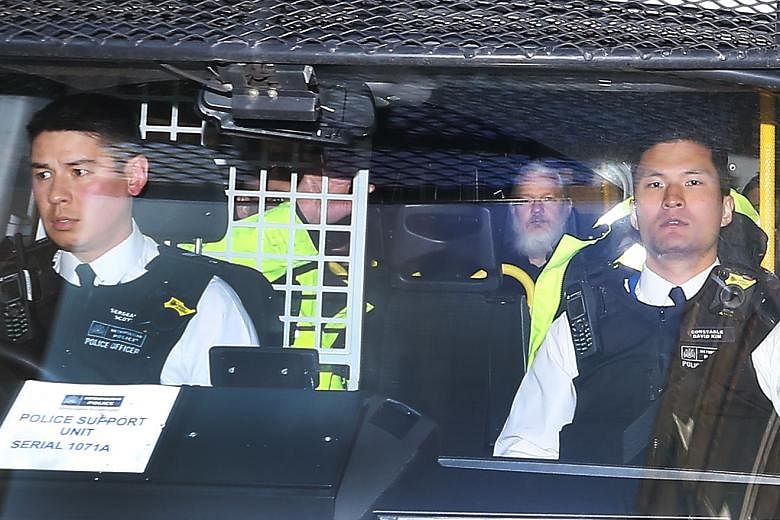QUITO/WASHINGTON • Ecuador's decision to abruptly end Julian Assange's seven-year asylum in its London embassy followed a long deterioration in relations, driven in part by suspicions he was secretly fuelling corruption allegations against President Lenin Moreno.
British police on Thursday arrested the WikiLeaks founder, who sought asylum in the Andean nation's diplomatic mission during the government of former Ecuadorean president Rafael Correa - who saw Assange as a hero for leaking secret US documents.
By contrast, Mr Moreno took a dim view of Assange when he took office in 2017, ordering the Australian hacker to cut back his online political commentary, stop riding his skateboard in the halls of the embassy and clean up after his pet cat.
Mr Moreno's government accused WikiLeaks of being behind an anonymous website that said Mr Moreno's brother had created offshore companies that his family used to fund a luxurious lifestyle in Europe while Mr Moreno was a delegate to a UN agency.
Mr Moreno denies wrongdoing.
The leaked materials, dubbed the "INA Papers", contained private photographs of Mr Moreno and his family. After the release of the materials, Mr Moreno said that Assange had no right to "hack private accounts and phones", without directly accusing him.
WikiLeaks tweeted about the reports but strongly denied that Assange was responsible for the leaks or had anything to do with their initial publication.
Ecuadorean government figures on Thursday publicly described what they called Assange's unacceptable and ungrateful behaviour in the embassy. The government said it had spent US$6.2 million (S$8.4 million) on his upkeep and security between 2012 and last year.
Foreign Minister Jose Valencia said Assange had been using a mobile phone that was not registered with the embassy and had warned the ambassador in January that he had installed panic buttons that he would activate if he considered his life at risk.
Interior Minister Maria Paula Romo told reporters on Thursday that Assange had been "allowed to do things like put faeces on the walls of the embassy and other behaviours of that nature".
Mr Vaughan Smith, a friend and founder of London's press Frontline Club who visited Assange late last week, said he believed the faeces allegation was false.
"Julian has been under stress but seemed in a balanced frame of mind every time I have seen him. It doesn't seem in character," Mr Smith said.
Assange had taken refuge in the embassy in 2012 to avoid extradition to Sweden over a sexual assault investigation that was later dropped.
But Swedish prosecutors said they are examining a formal request by the alleged victim's lawyer to reopen the investigation.
US officials announced after his arrest on Thursday that he had been charged with conspiracy to commit computer intrusion, paving the way for his extradition.
REUTERS

